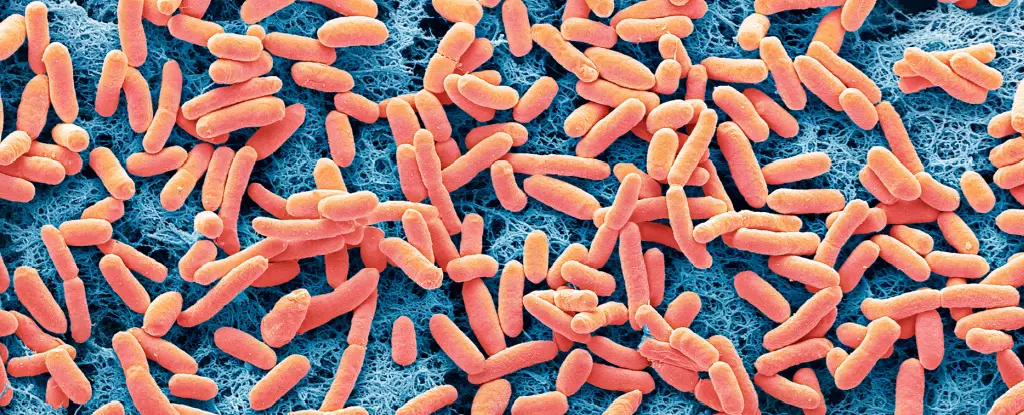Since the early 20th century, scientists have sought to harness the power of microbial fuel cells. However, the low efficiencies of these bioreactors and the picky nature of microbes have posed significant challenges. In a groundbreaking development, a team of researchers from the Swiss Federal Institute of Technology Lausanne (EPFL) has successfully engineered Escherichia coli, one of the most common species of bacteria, to generate electricity from brewery wastewater. This innovation surpasses previous bioengineered strains and paves the way for more efficient and sustainable energy production.
E. coli, a bacterium known for its adaptability, has the unique ability to grow on a wide range of sources, including wastewater. By leveraging this versatility, the researchers enhanced E. coli’s electricity-generating potential by modifying its genome to include instructions for protein complexes found in Shewanella oneidensis. This bacterium is renowned for its exceptional ability to produce a flow of electrons when it reduces metals, making it an ideal candidate for electricity generation.
The integration of S. oneidensis’ electricity-generating pathway into E. coli led to a two-fold increase in electroactivity compared to previous engineering attempts. By incorporating all components of the pathway, the researchers successfully enhanced E. coli’s electricity-generating capabilities and laid the groundwork for its potential applications in industrial settings.
Tackling Industrial Wastewater Treatment
One of the significant challenges in the brewing industry is wastewater treatment. The water used in brewing processes contains sugars, starches, alcohols, and yeast, making it vital to process and treat before disposal. Failure to do so can result in microbial blooms that can have detrimental effects on the environment. In the quest for sustainable solutions, the team at EPFL tested their engineered E. coli on wastewater collected from a local brewery in Lausanne, Switzerland.
To their delight, the modified bacteria thrived in the wastewater environment, consuming its organic components over a span of 50 hours. In a direct comparison, the S. oneidensis bacteria struggled to digest the mixed effluent, highlighting the unparalleled potential of the engineered E. coli for industrial wastewater treatment.
The adaptability of E. coli presents a world of opportunities beyond the realm of brewery wastewater treatment. Given its appetite for different chemical substrates, the engineered bacteria could potentially be adapted for use in other waste streams and feedstocks. This adaptability, coupled with the demonstrated success in brewery wastewater treatment, indicates the vast potential of this innovation for addressing diverse industrial wastewater challenges.
The Road Ahead: Scaling Up and Energy Savings
While the engineered E. coli has shown promising results in laboratory and brewery settings, the researchers acknowledge the need to test its performance at an industrial scale. Further experimentation will provide insights into its ability to process larger volumes of industrial wastewater efficiently.
If successful, this technology could have significant implications for energy savings. Instead of expending energy to process organic waste, the engineered E. coli simultaneously generates electricity while treating the waste, achieving a dual-purpose outcome. This synergy between waste treatment and electricity generation holds the promise of a more sustainable and efficient future.
The groundbreaking research at EPFL represents a significant breakthrough in microbial fuel cells. By harnessing the power of engineered E. coli, researchers have demonstrated the feasibility of generating electricity from brewery wastewater. This innovation not only offers a solution to the brewing industry’s wastewater treatment challenges but also opens up new avenues for sustainable energy production. With further advancements and scaling up, this technology has the potential to revolutionize industrial wastewater treatment and drive us towards a greener, more sustainable future.


Leave a Reply